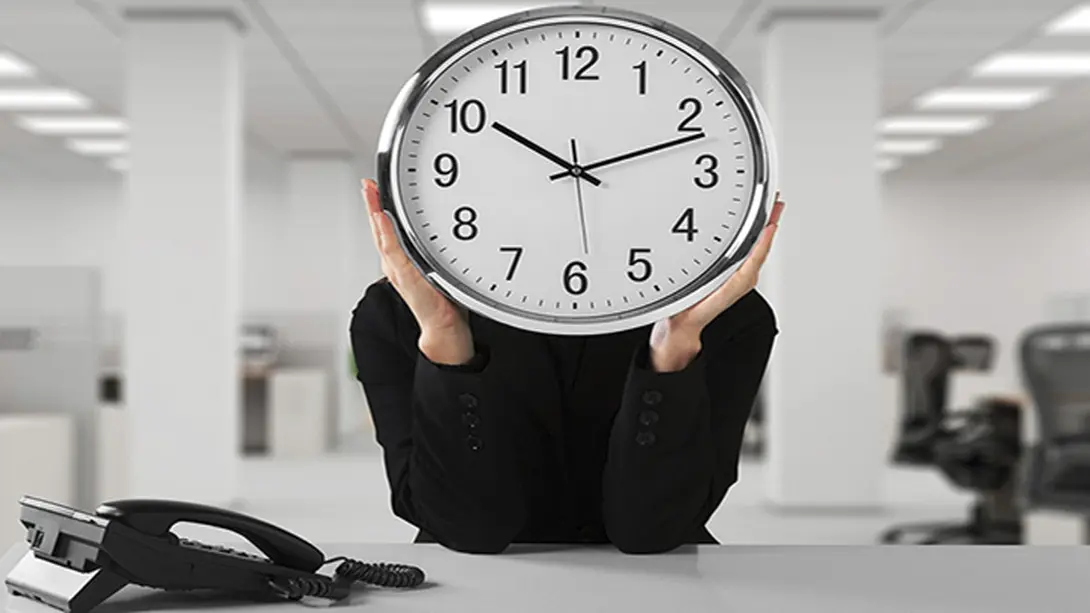Have you ever wondered how you can start your day in the most productive way possible? We must remember that productivity is critical to success at work and in life. Sometimes you may have woken up feeling like you don't have enough time in the day to do everything you need to do. However, there are a few things you can do to start your day off on the right foot and make every minute count.
What can I do to be a more productive person?
Sleep well
Getting enough sleep is crucial to maintaining productivity during the day. According to a study published in the Journal of Sleep Research, workers who slept less than 6 hours a night performed less well on the job than those who slept between 7 and 8 hours. In addition, sleep helps consolidate memory and improve concentration, which increases productivity.
Tips to sleep better
- Practice relaxation: Before going to bed, try doing relaxing activities like reading a book, meditating, or taking a warm bath.
- Exercise regularly: Exercise helps reduce stress and anxiety, which can improve sleep quality. Try to exercise at least 30 minutes a day, but avoid doing it right before bed.
- Create a calm environment : Make sure your bedroom is dark, quiet, and comfortable. Use blackout curtains, earplugs, and a comfortable pillow if necessary.
- Avoid long naps: If you have trouble sleeping at night, avoid taking long naps during the day.
- Reduce exposure to bright light: Bright light before bed can affect sleep. Turn off bright lights and avoid exposure to electronic device screens at least an hour before bed.
- Avoid overeating before bed: A heavy meal before bed can interfere with sleep. Try to eat dinner at least two hours before bedtime and avoid spicy or greasy foods.

Establish a morning routine
Creating a morning routine can be a great way to start the day with energy and motivation. Think of activities that you enjoy and that make you feel good, and use them to create a morning routine. You can include activities such as exercising, meditating, reading, writing in a journal, or planning your day. It's important that you find a morning routine that works for you and that you can stick with long term.
Do not skip breakfast
Breakfast is the most important meal of the day, and skipping it can affect your energy and concentration. Be sure to include foods high in protein and complex carbohydrates to keep your energy levels steady throughout the day. Some healthy breakfast options include eggs, oatmeal, yogurt, and fruit.
Prioritize your tasks
Before you start your work day, identify the most important and urgent tasks and focus on them. Leave less important tasks for later or for another time of the day. If you have a to-do list, think about which ones will take the longest or are most urgent and focus on those first. In this way, you can start the day more productively and make the most of your time.
Minimize distractions
Distractions can be a huge barrier to productivity. Try to minimize distractions in your environment, such as your cell phone or social media, while working on important tasks. If you need to use your phone for work, put it on airplane mode or on silent so it doesn't distract you. In addition, it is recommended that you avoid checking your emails or text messages during the early hours of the morning so as not to distract yourself from your important tasks.
take regular breaks
Taking short breaks from time to time can help you maintain concentration and increase productivity. Take a short break to walk or stretch every 45 minutes or one hour. Also, it is important that you take a complete lunch break. If you work in an office, try to get outside and walk outside to rest your mind and body.
plan your day
Taking a few minutes to plan your day can be very useful to start the day in a more productive way. If you already have a to-do list, review it and make sure you've prioritized the most important and urgent tasks. If you don't already have a to-do list, take a few minutes to make one. You can use a calendar or an app to do this. When planning your day, it's also important to keep in mind deadlines and deadlines for completing your tasks.

Learn to say "no"
Saying "no" can be hard, but it's important to learn how to do it to protect your time and energy. If someone asks you to do something that isn't important or urgent, learn to say "no" or "maybe later." Learning to set healthy boundaries can help you avoid stress and work overload.
Maintain an organized work environment
It can be a great help to start the day in a more productive way . Make sure you have a clean and tidy work space. Keep your documents and files organized in folders or on your computer so you can easily access them when you need them.
Use technology in your favor
There are many apps and online tools that can help you be more productive. For example, you can use time management apps, note and organization apps, or even meditation apps to help you relax and focus. Find out which tools work best for you and use them to maximize your productivity.
Do not give up
Productivity is not about being perfect or doing everything in one day. Sometimes things don't go as planned, but the important thing is not to give up. If your day doesn't start out as productively as possible, don't worry too much about it. The important thing is that you keep going and keep trying to improve your productivity and make the most of every day.





Comentarios